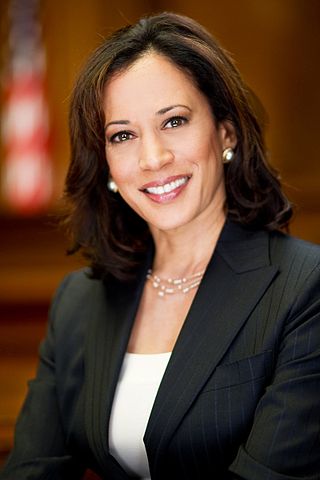Top 2020 Democratic Presidential Candidates' Views on Legal Marijuana
August 11, 2017
A Look at the Candidates' Views on This Issue
2020 is a long time to wait, but that’s probably the earliest point before the legal marijuana
Honorable Mention
It seems unlikely that Sanders will get the Democratic nomination in 2020 even though he has the best shot at winning; he’s literally the most popular
current politician in America. Sanders would have likely beaten Trump if he had received the nomination because he would have maintained the liberal base while receiving better voter turnout with the key demographics where Clinton was unpopular.
It’s no secret that the DNC worked behind the scenes to block Sanders from winning the nomination. In fact, my last column with The American Conservative
detailed the current lawsuit filed by some of his supporters against the DNC. Long story short, the DNC hasn’t openly denied many of the accusations that their group tried to suppress his campaign. Hence, there’s no reason to believe that the DNC will show any support for him in the next election.
Most Likely Candidates
It looks like something akin to the Watergate scandal is in the works. Jimmy Carter was an obscure Governor from Georgia when that took place. (He also publicly supported decriminalization
of possession of up to one ounce of marijuana, which was a bold political stance in the 1970s.) However, it seems unlikely that a Governor will receive the nomination because the news cycle is entirely focused on Trump.
There will probably be lengthy Congressional hearings and Democrats in related committees will get the face time that corresponds to votes. With that in mind, please note that James Garfield was the first and only sitting member of the House of Representatives to be elected President. Therefore, we’ll look at the most likely candidates currently serving in the U.S. Senate.
This fast-rising politician has rapidly gained a ton of political momentum. She was elected last year to her first term in the U.S. Senate and she already serves on some influential Senate Committees, including Homeland Security & Governmental Affairs and the Intelligence Committee. Harris served as the Attorney General of California before heading to Capitol Hill and, like most prosecutors, she predictably sided with the special interests of the prison industrial complex. She waged a famous crusade against BackPage.com and has remained a strong supporter of civil asset forfeiture.
While serving as Attorney General in 2014, she literally laughed
at the suggestion of legalizing recreational marijuana. However, Harris somewhat reversed course, but she isn’t in favor of legalization. Instead, she is now advocating for decriminalization, but her exact plan isn’t clear. In April of last year, she suggested
that marijuana should only be changed from a Schedule I to Schedule II drug. Furthermore, as Tom Angell (Chairman of the Marijuana Majority) accurately points out
, Kamala Harris continues referring to the drug war in the past tense as if it is a thing of the past.
Elizabeth Warren has strong name recognition and has developed a reputation as a tough banking regulator. As far as her views on marijuana, she has seemingly shifted to tepid support of legalization. Two years ago, when questioned about her state’s ballot initiative for recreational marijuana she told MassLive
:
“I’m open to it. I think we’ve learned more. A couple of states have legalized marijuana for recreational use.”
That was a reversal from the past. She had been openly against legalization
and even attacked
a rival Republican as late as 2013 for supporting legal recreational marijuana. However, she’s now acting as an ally to the legal marijuana industry. She has publicly challenged Jeff Sessions
to respect states’ rights and is working to create legal banking options
for the industry.
Booker has a high level of name recognition, particularly with young voters. He served as the Mayor of Newark before heading to the U.S. Senate in 2013. He’s quickly made a name for himself by being a very accessible media figure.
Of these three potential candidates, Booker has been by far the most courageous advocate of legal recreational marijuana. In fact, he sponsored the “Marijuana Justice Act,” SB 1689
, which is hands down the most comprehensive and progressive marijuana legalization bill in U.S. history.
Here are a few highlights
:
- Every person presently incarcerated for a marijuana offense would be eligible to have that sentence reversed.
- It would remove marijuana entirely from the controlled substance list.
- It would provide federal funds for states to change drug policies if they have incarcerated minorities and low-income individuals disproportionally.
- It would provide a “Community Reinvestment Fund” with job programs and several other benefits in cities that have been particularly affected by the drug war.
Suffice it say, this is an incredibly ambitious bill and it has absolutely no shot of being passed at this time. Nonetheless, it’s a positive development that proposals like this are beginning to be introduced to the electorate at large.

For the last two decades, while U.S. forces occupied the country, Afghanistan has been the epicenter of the world’s opium production with roughly 90% of global supply. After American troops withdrew from the country, and with the Taliban in charge, Afghan opium production drastically declined. There were an estimated 6,200 tons produced in 2022, as opposed to 333 tons in 2023, according to the United Nations Office on Drugs and Crime (UNODC). That may surprise some readers as the Taliban have been credibly linked with the heroin trade. The UNODC estimated in 2009 that the Taliban generated $155 million per year from Afghan opium. They weren’t traffickers but they forced traffickers and farmers to pay a “tax” in their territories. Even though those were handsome profits, the Taliban were relatively a minor part of a massive black market worth then roughly $3 billion annually. History shows that the Taliban’s policy on opium has shifted from time to time depending upon their circumstances. An opium ban in Afghanistan seems to fall in line with the Taliban’s tyrannical fundamentalist Islamic modus operandi. However, it also benefits those in power. Several Afghan warlords derive much of their authority as a result from black market profits. Hence, whoever controls the opium trade, or lack thereof, in Afghanistan holds all the cards in a country where the average annual income is 378 US dollars. After the Taliban gained control of Afghanistan in 1996, they struggled to find international recognition. Therefore, the Taliban killed two birds with one stone when its former leader, Mullah Omar, issued an opium ban in July of 2000. That edict was beyond effective. According to UNODC estimates, Afghan opium production dropped from 3,276 tons in 2000 to 185 tons in 2001. The U.S. State Department even approved $43 million of humanitarian assistance for the Afghanistan government just months before 9/11 due to its strong counternarcotics efforts. After 9/11, the Taliban’s power decreased but didn’t cease. America installed a deeply corrupt transitional government. In turn, opium production escalated exponentially. America sided with militias entrenched in the opium trade who opposed the Taliban, such as the Northern Alliance. But, the Western media has only reported in drips and drabs about the U.S.-allied politicians/warlords who have been far more prominently involved in heroin trafficking. The corruption ran to the top. There are too many flagrant examples to list concisely, but notably, a man carrying 183 kilos of heroin was released by the police because he was carrying a signed letter of protection from Afghanistan’s drug czar, General Mohammad Daud Daud. Wikileaks revealed that former President Hamid Karzai once pardoned five police officers who were captured with 124 kilos of heroin. Even Hamid Karzai’s half-brother, Ahmed Wali Karzai, was a known drug smuggler who had been on the CIA payroll for years. Practically the entire Karzai administration was on the CIA’s payroll all while the agency knew these officials were drowning in drug money.












